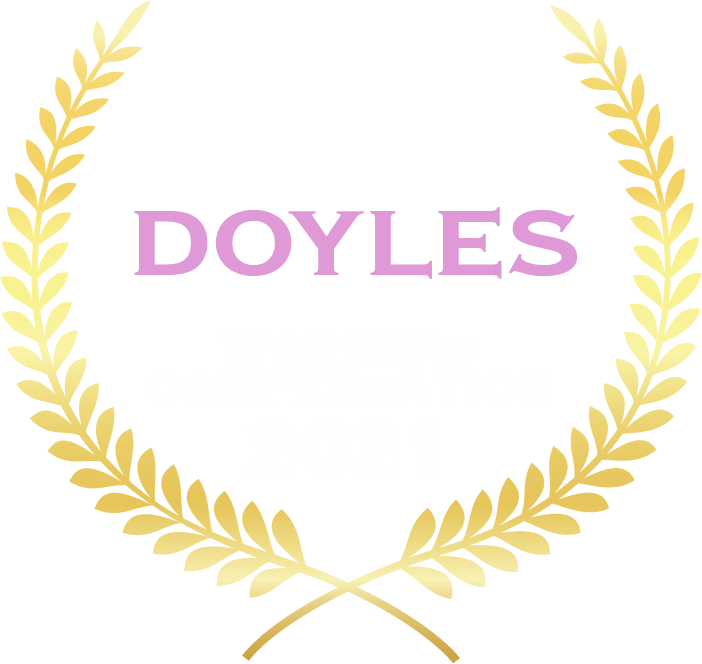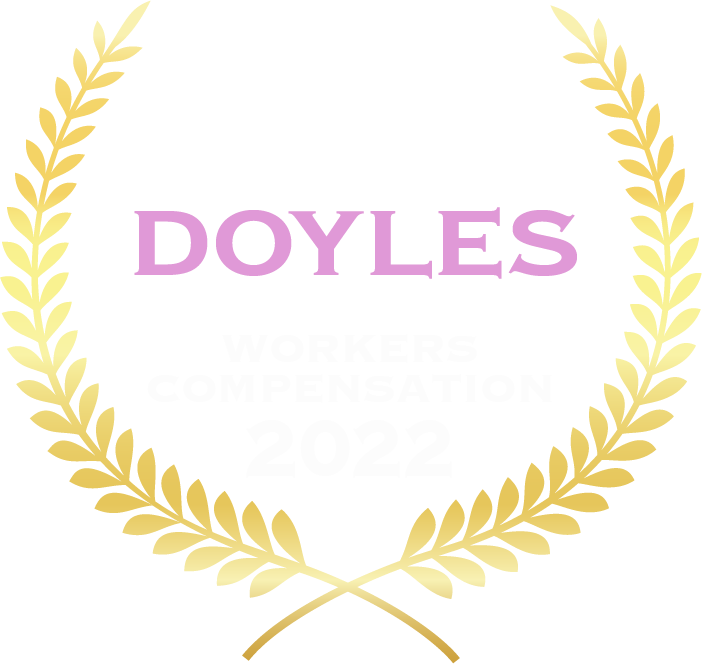Disclaimer: The advice within this article is accurate as of 15/11/2023. The State Government is in the process of introducing new legislation that could significantly impact WC entitlements for people with psychological injuries, so a lot of this could change in the coming months.
What is a work-related psychological injury?
Work-related psychological injuries are emotional, cognitive, and behavioural symptoms, significant injuries, or damage as a result of employment that can have a devastating and, in some cases, lasting impact on a worker’s life.
The most common work-related psychological injuries in Victoria include:
- PTSD (Post-traumatic stress disorder);
- Depression;
- Anxiety;
- Adjustment disorder, and
- Panic disorders.
Mental health illnesses and psychological injuries in the workplace can occur from a number of factors, including:
|
It is often hard to understand what the next steps are if you have been injured.
To help you get started we have created this article to guide you through the essentials of seeking workers compensation after suffering a work-related psychological injury.
If you or someone you know has suffered a psychological injury at work in Victoria and is seeking compensation read on to find out more about where you stand, what your next steps are and if you may be entitled to compensation. However, for more specific and tailored advice, you should contact a qualified workers compensation lawyer as soon as possible.
What is a workplace psychological injury claim in Victoria?
A workplace psychological injury claim is a statutory claim made by an injured worker for a psychological injury sustained at work where they can access basic entitlements and support to help them recover from their injuries. The Victorian Workcover scheme may also entitle an injured employee to sue for Common Law damages where the workplace injury occurred through negligence.
What’s considered negligence by my employer
Negligence by an employer in the context of workplace psychological injury typically involves the failure to fulfil a duty of care to their employees. While the specifics may vary by jurisdiction, here are some general points that could be considered negligence by an employer:
- Failure to Provide a Safe Work Environment: Employers have a non-delegable legal responsibility to provide a safe and healthy work environment. Negligence may occur if they do not take reasonable steps to ensure that the workplace is free from hazards that could lead to psychological harm.
- Ignoring Complaints: If an employee reports harassment, bullying, or other harmful behaviour to their employer, and the employer fails to address these complaints appropriately or does not take any action to prevent such behaviour, this may be considered negligence.
- Inadequate Training and Supervision: Employers should provide adequate training and supervision to ensure that employees understand their job responsibilities and are able to perform their tasks safely. Neglecting these aspects could lead to negligence claims.
- Overworking or Ignoring Employee Well-Being: If an employer consistently demands excessive hours, fails to provide sufficient breaks, or ignores employee concerns about their mental health and well-being, it may be considered negligence.
- Failure to Implement Anti-Harassment and Anti-Discrimination Policies: If an employer does not have or enforce policies and procedures to prevent and address harassment, discrimination, or other harmful workplace behaviours, they may be considered negligent if such incidents lead to psychological harm.
- Inadequate Response to Workplace Incidents: When incidents that could lead to psychological harm occur, such as workplace accidents or violence, employers should respond promptly and appropriately. Failure to do so may be seen as negligence.
- Lack of Support for Employees: Employers should offer support services or resources for employees who may be experiencing psychological distress due to work-related factors. Negligence may occur if they fail to provide such support.
It’s essential to consult with a legal professional familiar with personal injury law in your jurisdiction if you believe your employer’s actions or inactions may constitute negligence. The specific criteria for determining negligence may vary based on applicable laws and precedents.
What type of employees can claim Worker Compensation?
Full-time, part-time or casual workers can claim workers compensation. You can also make a workers compensation (WorkCover) claim in Victoria if you are a sub-contractor and one organisation paid at least 80% of your wages over the past 12 months. There are also further categories of what are called ‘deemed’ workers. We would encourage you to obtain legal advice in order to explore these.
If you are an injured Commonwealth Government employee or an employee of a Comcare licensee (such as Australia Post, Telstra, Toll, Linfox), a claim can be made under the Federal ‘Comcare’ scheme.
Who is most at risk of workplace psychological injury?
Those at most risk of developing psychological injuries are generally vulnerable individuals and workers in high-risk industries and sectors which include:
- Health care and social assistance workers
- Frontline workers
- Young workers
- Ageing workers
- Public administration and safety workers
- Education and training workers
- Government workers
- Industries in transition or small business workers/owners.
What can you claim for a psychological injury in the workplace?
You may be entitled to claim compensation and benefits for a psychological workplace injury including provisional payments, common law entitlements, weekly income payments and lump sum payouts under the Victorian WorkCover scheme.
|
Payment type |
What this is |
| Weekly payments | Weekly payments compensate you for loss of earnings and income while you are off work / working in a limited capacity. |
| Medical and like expenses | Payment of your medical expenses such as; medical bills, hospital visits, travel expenses and rehabilitation. |
| Lump sum Impairment Benefit claim | A lump sum workers compensation payout that covers permanent impairments resulting from the work-related injury. |
| Lump Sum Work Injury Damages Payout | A lump sum payout for damages/injury caused by the employer’s negligence or the negligence of a third party. This payment is in recognition of the loss of enjoyment of life (pain and suffering) and may extend to past and future economic loss (loss of earnings) resulting from your injuries. This is also known as a ‘Common Law damages claim.’ |
Provisional Payments in Victoria
According to WorkSafe Victoria, workplace psychological and mental injury is on the rise in Victoria, with work-related psychological injuries making up to 15.1 per cent of all new claims received by WorkSafe in 2021-22 they are on track to grow to a third of all WorkSafe claim by the end of the decade.
In an effort to address the growth in mental injuries in Victorian workplaces, the Victorian WorkCover scheme has introduced a new process that provides early access to certain benefits known as provisional payments.
Once you have lodged your WorkCover claim and if it has is accepted, you can potentially access several WorkCover entitlements as outlined above.
What are provisional payments?
In Victoria, workers with a mental injury can access early treatment and support while they await the outcome of their workers compensation claim, this is called provisional payments.
Provisional payment entitlements include:
- Medical expenses such as medication;
- Consultations and psychological support from your General Practitioner, Psychologist or Psychiatrist;
- GP appointments.
How do provisional payments help injured workers in Victoria?
Provisional payments can cover the reasonable cost of treatment and services for their injuries for 13 weeks from the date of their injury even if your claim is rejected. This entitlement is not an acceptance of liability by the WorkCover Insurer but can help provide support so that they are not left to suffer without support.
However, it is still a requirement that the medical and like treatment is reasonable, necessary and referable to your work-related psychiatric injury.
At Maxiom Injury Lawyers, we often find that there is a high propensity for one’s psychiatric condition to deteriorate in the absence of treatment. Therefore, this entitlement is a welcome and much-needed addition for those who have been impacted psychologically and mentally by reason of their employment.
The rationale behind the Victorian Government’s introduction of this entitlement is in attempt to improve recovery and return to work prospects. This legislative change was made with the consideration that the WorkCover scheme continues to be financially viable.
If you have sustained a psychiatric injury as a result of your employment, please contact us on 1800 853 085. We will advise you as to where you stand.
WorkCover compensation and WorkCover in Victoria
Is workers compensation the same as WorkCover?
Yes, workers compensation and WorkCover are the same and refer to the same compensation scheme.
Who can claim a WorkCover compensation for psychological injury in Victoria?
Under the WorkCover scheme, an injured worker in Victoria may be able to make a psychological injury worker’s compensation claim by lodging a WorkCover claim with their employer where they have developed a condition or have a worsening of a pre-existing condition arising out of or in the course of their employment and provided that their employment is a significant contributing factor. Simply put, it is necessary to show that there is a connection to work.
It is important to understand that WorkCover can reject liability for a psychological injury claim if the injury is a consequence of ‘reasonable management action’. If your claim is rejected on this basis, it is essential that you obtain legal advice on the merits of disputing such a determination.
Does workers compensation / WorkCover cover stress leave?
Yes, it is possible to claim workers compensation for stress leave if:
- You have been diagnosed with a psychological injury as a result of workplace stress.
- Your injury was not as a result of reasonable management action.
- Receiving workers compensation for stress leave can be challenging to prove, and insurers often deny psychological injury claims.
The video below provides valuable information on how Victorian workers who suffer from a mental injury can access early treatment and support, where you can go for support, and how to find out further information.
A specialist workers compensation lawyer can provide legal advice about your individual circumstances and situation.
Contact our workers compensation claim team today. Maxiom Injury Lawyers can navigate all the obstacles to get you the compensation you deserve. We are proud to have taken on and won complex cases and are committed to keeping legal fees low to maximise the compensation you receive.
Weekly payment
How much do I get paid on Workers compensation (WorkCover)?
How much workers compensation (WorkCover) you are entitled to depends on many factors, including the nature and severity of your injury, and medical evidence regarding your capacity for work. Basic entitlements for a work-injury claim enable injured workers to access weekly payments and reasonable medical and like expenses.
The following table provides a guide (as of February 2023) to the weekly payments, lump sum payouts and type of further compensation you may be entitled to on workers compensation.
| Entitlement Period | Work capacity | Entitlement |
| First Entitlement Weeks 0-13 |
Unable to return to pre-injury work | Up to 95% of your pre-injury average weekly earnings (also known as PIAWE) (currently $2590* a week) or the maximum weekly compensation amount – whichever is less.
Entitlement is minus what you are currently earning at work.
|
| Second Entitlement Weeks 14-130 |
Unable to return to pre-injury work | Up to 80% of PIAWE (currently $2590* a week) less 80% of your current earnings.
Your weekly entitlements will depend on your capacity to return to work. If your PIAWE includes any overtime or shift allowance, this drops off after 52 weeks. |
| After 130 weeks | You will need to prove that you are unable to work (no current work capacity) and this is likely to continue indefinitely. | 80% of your pre-injury average weekly earnings subject to a Statutory maximum of double the Victorian average weekly earnings (currently $2590* a week). These payments can continue until retirement age. |
You can continue to receive weekly payments from WorkCover after 130 weeks if:
- If you can establish that you have no capacity for work and that your circumstances will likely continue indefinitely.
- You have applied for the payments to continue on the basis you are working at least 15 hours per week and have current weekly earnings of at least $228.00 per week, you are incapable of undertaking further additional employment or work which would increase your current weekly earnings, and the evidence supports that your current level of capacity is likely to continue indefinitely, that is, the current level of capacity will not improve in the foreseeable future. This is subject to the insurer approving an application and, should this application be disputed, this can be disputed.
- Disclaimer: Figures are correct as of 1 July 2022. Workers’ compensation claim fees are subject to change at any time. Figures for TAC claims change annually. The maximum weekly compensation amount is capped and indexed in April and October each year. Compensation payouts for injuries may vary depending on various factors.
Please note entitlements after 130 weeks are currently under discussion to be significantly reformed, particularly for individuals suffering from psychological injuries. Once the extent of these reforms becomes clear, we will provide further updates on the Maxiom website.
Contact our Workcover lawyers today to discuss what compensation amount you may be entitled to.
What if there is a change in my work or medical circumstances?
If the information provided indicates that there has been a change in your work or medical circumstances, a review will need to be conducted to determine your ongoing entitlements to weekly payments of compensation.
See: Terminate weekly payments after the second entitlement period
How often is this reviewed?
After deciding your ongoing entitlement, the Insurer will regularly review your claim.
After 130 weeks, reviews should be conducted at least every six months to determine your capacity for work and eligibility to continue to receive workers compensation benefits. The assessments may include a vocational assessment and medical assessment by your treating practitioner and an independent medical examiner.
What will be the outcome of the 6-month review?
If the review indicates that you have, and are likely to continue to have, no capacity to increase your work hours or take on additional duties, a further review should be conducted at either:
- six months from the date of the previous review or
- at a date determined by the Insurer to be more appropriate.
Lump sum payment in Victoria (Impairment and Common law claims)
Can I get a lump sum payment for psychological injury?
Yes, you can potentially receive a lump sum payment for psychological injuries.
What are the types of workers compensation injury lump sum payments?
An injured worker lodging a compensation claim for a work-related injury in Victoria is entitled to make an application for two types of lump sum payments under the WorkCover legislation:
- Impairment benefits claim
- Common law damages for your pain and suffering and economic loss.
The kind of lump sum payment depends on a variety of factors.
| Impairment Claim | Common Law Claim |
| Based on whole person impairment % | May be compensated for pain and suffering and loss of income |
| Injury must be stable before the claim can be finalised | Injury should be stable before proceeding to claim |
| Fixed compensation amounts (these are based on the whole-person impairment rating) | Must prove negligence by employer or another party |
| Do not need to prove negligence | Must prove you have a ‘Permanent severe mental or permanent severed behavioural disturbance or disorder’ |
For more information on Lump Sum Benefits for Work Injuries
What’s a Common Law claim for psychological injury?
A common law claim, also known as a work injury damages claim, is a commencement of legal action for a psychological injury through the negligence of your employer or a third party.
Common law claims consider the impact an injury has on a person’s life and compensate them accordingly. If the claim is successful you will be entitled to a lump sum for common law damages for
- Pain and suffering only, without any loss of earnings component.
- Pain and suffering and economic loss.
This compensation is in recognition of the impacts your injury has on your life. This payment is in addition to your workers compensation payments.
If you are injured through negligence of your employer can lodge a common law claim following a WorkCover claim.
What are the steps involved in making a claim under the workers compensation scheme for psychological injury?
There are 12 steps to make a claim under the workers compensation scheme, these are as follows:
- Workplace injury / illness / accident occurs.
- Claimant seeks medical attention and help.
- Employee completes an incident report and provides it to their employer.
- Claimant completes and lodges a worker’s compensation claim form.
- Claimant seeks legal advice and representation from a personal injury lawyer in Melbourne.
- Claimant attends a serious injury medical assessment for an independent evaluation of their injuries.
- Submit a claim for impairment benefit lump sum compensation.
- Where compensation for damages is sought, a common law claim is lodged.
- Parties seek to settle the matter out of Court through mediation, this is called the pre-litigation phase.
- If no resolution is achieved at mediation, further legal proceedings commence.
- The hearing date is set.
- The legal case is heard before a Court and jury to determine an appropriate settlement.
If you suffer from an injury at work, it is recommended that you seek the guidance of No Win No Fee lawyers as soon as possible to help you gather all the documentation and materials required to ensure that you receive the full benefits that you are rightfully entitled to.
What do I need to do to prove negligence in my workers compensation claim?
Once you become injured / aware of your injury, it is vital that you seek medical attention to begin documenting your injury history.
Your doctor or medical professional will be able to supply you with the supporting documents and medical evidence you need to prove your injury and the validity of your workers compensation claim.
What information do I need for a workers compensation claim?
Information you need for you’re a work injury compensation claim in Victoria include:
- Details of your psychological injury and the nature of your impairment.
- Details of the events that led to your injury and/or the probable cause.
- Employment history of where the injury took place.
- Your medical history detailing any previous injury or conditions that may have contributed to the impairment.
- Any previous compensation concerning prior injuries or conditions.
- Details of the employer’s negligence and how they breached their duty of care.
- Witness statements.
- Diagnostic reports
- Medical report from an independent medical examiner
- Certificate of Capacity (how the injury has affected your ability to work).
Claiming work injury damages in Victoria can be challenging, therefore it is recommended to work with a personal injury lawyer that can fight in your corner to ensure you get the maximum entitlements you deserve.
How much compensation am I entitled to?
The minimum and maximum amounts for common law payout in Victoria for 2022/2023 are:
- Pain and suffering – (WIRC Act) threshold $65,120;
- Pain and suffering – (WIRC Act) maximum $660,970;
- Pecuniary loss – WIRC Act threshold $67,430;
- Pecuniary loss – WIRC Act maximum $1,518,180.
Disclaimer: Figures are correct as of 03/05/2023. Please note that these figures are set to change in July 2023. Common Law Payout fees are subject to change at any time. Payouts for injuries may vary depending on various factors, which can affect the payout at the time of delivery.
Contact Maxiom Injury Lawyers today to discuss what compensation amount you may be entitled to.
What are damages for pain and suffering in Victoria?
Damages for pain and suffering is a lump sum compensation payment made in recognition of a loss of enjoyment of life suffered by an individual who has sustained a serious or significant injury. The calculation of damages takes into account what is a fair and reasonable compensation for an injury, often with reference to like cases with like injuries.
What is classified as pain and suffering?
Pain and suffering are classified as the adverse effects an injury has on an individual’s physical and/or psychological well-being. In particular, pain and suffering takes into account the physical and mental discomfort, emotional trauma and the adjustment of lifestyle required to live alongside the injury.
How do you calculate pain and suffering damages?
Pain and suffering damages are calculated on an individual basis and in recognition of the impact an injury has, and will continue to have, on a person’s enjoyment of life. “Pain and suffering” is one “head” of damages that is considered in a damages claim.
Can emotional distress be part of pain and suffering?
Yes, emotional distress can form part of a claim for pain and suffering. This can be relevant where the injury is purely psychological or in circumstances where a physical injury has resulted in a permanent psychological reaction.
How to prove psychological injury
How do you establish pain and suffering for emotional distress?
To prove emotional pain and suffering, you require medical evidence from a treating health professional, preferably a psychologist or psychiatrist, which details the extent of your injuries.
It is recommended that you seek professional help as soon as possible to begin to formally document your concerns for your mental wellbeing. To further substantiate your claim, it can be beneficial to have statements from family members, friends and witnesses who can attest to your suffering.
A Court will consider the following:
- Functional, cognitive and psychiatric limitations;
- Sleep difficulty;
- Restrictions with self-care;
- Restrictions with household and domestic duties;
- Impact on recreational and social activities;
- Impact on relationships and intimacy;
- Restrictions with capacity to work; and
- Inability to continue with activities that previously provided enjoyment.
To understand whether or not you have prospects of meeting the applicable injury tests, you should speak to an expert personal injury lawyer at Maxiom Injury Lawyers.
Is there a time limit to claim compensation for psychological injury?
Yes, workers compensation (WorkCover) claims in Melbourne have strict time limits. A common law claim can only be made 18 months after the date of injury or once your impairment benefits have been finalised.
If you have been exposed to asbestos, you must submit a workers’ compensation claim within three years from the date you become aware of the injury.
However, there are circumstances where an injured Victorian can lodge a claim out of time. We recommend speaking with one of our Workers Compensation Claim Lawyers to discuss whether you may be eligible to make a claim ‘out of time’.
The Insurer has 28 days to provide their decision.
Who can help with my psychological injury compensation claim?
A specialised WorkCover lawyer can assist with lodging your workers compensation.
The best way to win a psychological injury claim is to speak with a legal expert with a high success rate who specialises in workers compensation, transport accidents and personal injury law.
The benefits of working with a personal injury lawyer cannot be over-emphasised. A personal injury lawyer has an in-depth understanding of the legal processes and tactics employed by insurance companies and can advise you on how to best fill out the necessary paperwork to maximise your chances of success, alert you to the required evidence you will need, and help you understand what compensation you might be entitled to.
At Maxiom Injury Lawyers, you will be partnered with an Accredited Specialist in workers’ compensation who is accessible, will advocate for your rights, be your voice and ensure you receive your full and fair entitlements. We are also committed to keeping legal fees low so that you receive the maximum amount of compensation.
There are five steps we suggest you take for a successful common law claim and to ensure you achieve the maximum compensation you deserve.
- Always keep the evidence.
This includes photos, witness details, and every person involved during the process, including police and medical personnel. It is better to have the information and not need it than need it and not be able to obtain it. Make sure you collect all the information, write it down, keep it in a safe, accessible space and get advice on how and when you may need to use these details. - Seek medical care and proof.
Obtain the best medical care and all the correct medical proof you need from a registered medical practitioner and keep all information, including medical records, medical reports, receipts, and travel expenses, ready and on hand. - Don’t rush into a settlement.
We understand wanting the process to be over as quickly and as stress-free as possible, but this will not always result in the best outcome for you. No detail or information is too much, so be as detailed as you need to be with your lawyer. An expert Personal Injury Lawyer will take all the details and information you have provided and let you know if any more information is required. - Get legal advice.
Talk to a no-win no-fee lawyer to get the best advice and provide them with all the information and details required. No question, concern, or worry is too much. An experienced personal injury lawyer will have dealt with similar cases and can help advise you on everything you need. Ask questions and get to know them personally. This is your personal injury claim, and you are entitled to not only the maximum compensation but also the best legal advice to help you win your case.
We hope this article has helped answer some of your questions. The pathway to recovery always starts with seeking help. If you require personal injury compensation lawyers in Melbourne who you can trust, contact Maxiom Injury Lawyers at any time by phone or by form.
If you are not quite ready to speak to us, we also offer a Free Claims Check so you can find out if you are eligible to make a claim for your injury. We are always here to help and guide you on your journey.











